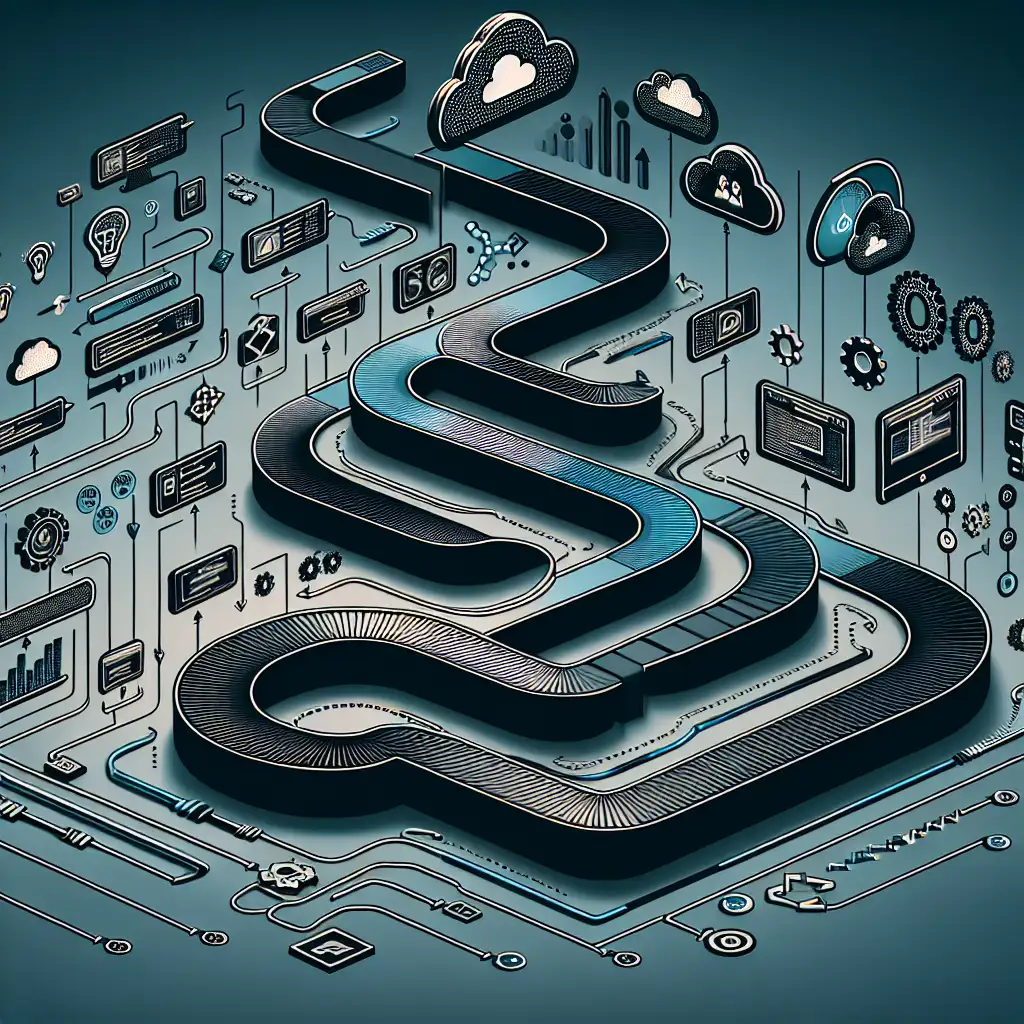Mastering DevOps From Scratch: A Strategic Roadmap Using Udemy Courses
As the demand for DevOps expertise accelerates across the tech industry, many professionals find themselves overwhelmed by the sheer number of learning options available online. Udemy alone features hundreds of DevOps-related courses, ranging from beginner-friendly intros to deep dives on advanced CI/CD pipelines, Kubernetes, and Infrastructure as Code (IaC). The challenge isn’t just about learning – it’s where and how to start, what sequence works best, and how to build upon foundational skills to eventually master sophisticated real-world tools and workflows.
Instead of blindly hopping through popular DevOps courses hoping something sticks, this guide cuts through the noise by mapping out a clear skill-building pipeline on Udemy. Whether you’re completely new to DevOps or looking to advance your career with hands-on expertise, this practical roadmap will empower you to progress steadily from fundamental concepts to complex implementations.
Why a Strategic Roadmap Matters
DevOps is a broad multi-disciplinary practice combining development, operations, automation, monitoring, and cultural philosophies. Jumping into any one area prematurely can lead to confusion or missed opportunities to connect the dots holistically.
By following a roadmap curated around Udemy’s course offerings:
- You learn skills in the optimal order.
- Avoid duplicating content across courses.
- Build confidence incrementally.
- Get practical hands-on labs complementing theoretical knowledge.
- Progress towards certifications or real project implementations.
Step 1: Grasp Core DevOps Concepts (Foundations)
Recommended Udemy Course: DevOps Fundamentals for Beginners
Before installing tools or writing YAML files for CI/CD pipelines, it’s essential to understand what DevOps truly is — its culture, goals, and challenges.
Key Topics Covered:
- The software development lifecycle (SDLC) vs. the DevOps lifecycle
- Continuous Integration (CI), Continuous Delivery/Deployment (CD)
- Infrastructure as Code basics
- Version control using Git/GitHub overview
- Introduction to containers & virtualization
Example:
Imagine a scenario where developers check code into version control daily—and automated tests run each time. This helps catch bugs early before reaching production—a fundamental motivation for DevOps practices.
Mastering this mindset early sets a solid foundation upon which tool-specific skills can be built.
Step 2: Become Proficient with Version Control & Scripting
Recommended Udemy Course: Git Complete Masterclass: Beginner to Advanced
No DevOps pipeline functions without efficient source code management:
- Deepen your skills using Git branches effectively
- Hands-on merges and conflict resolution
- Using Git in automation scripts
- Bash scripting essentials for task automation
Hands-On Tip:
Practice cloning popular open source projects and creating pull requests yourself. Automate simple workflows like backups or file formatting with Bash scripts.
Step 3: Understand Containerization & Docker
Recommended Udemy Course: Docker Mastery: The Complete Toolset From a Docker Captain
Containerization has revolutionized how applications are deployed and scaled.
Learn:
- What containers are and why they matter
- Building Docker images & swapping them between environments
- Networking containers and persistent storage considerations
- Docker Compose for multi-container applications
Mini Project:
Create a simple Node.js or Python web app inside a container. Build docker images locally and push them to Docker Hub. Try running multiple containers linked together (e.g., app + database).
Step 4: Dive Into CI/CD Automation Pipelines
Recommended Udemy Course: CI/CD with Jenkins Pipeline: Practical Guide
Continuous Integration / Continuous Delivery pipelines automate building, testing, and deploying applications—core tenets of DevOps.
Learn:
- Installing Jenkins or similar tools (GitLab CI/CD, CircleCI)
- Writing pipeline as code files (Jenkinsfile)
- Automated testing hooks & deployment plug-ins
- Trigger builds on Git commits & merge events
Example Pipeline:
Set up a Jenkins pipeline that pulls your Git repo changes, runs unit tests with Maven or npm, builds a Docker image if tests pass, then deploys the container on a staging server automatically.
Step 5: Orchestrate Containers at Scale Using Kubernetes
Recommended Udemy Course: Kubernetes Hands-On - Deploy Microservices to the AWS Cloud
Once you understand container basics and CI/CD workflows, orchestrating these containers at scale becomes essential—enter Kubernetes.
Master:
- Key components like Pods, Services, Deployments
- ConfigMaps & Secrets management
- Horizontal scaling & self-healing of applications
- Helm charts for packaging apps
Deploy multi-tier microservices apps spreading containers across cluster nodes dynamically.
Step 6: Infrastructure as Code & Configuration Management
Recommended Udemy Courses:
- Terraform for Beginners
- Ansible Automation for Beginners
Managing infrastructure manually is error-prone. Infrastructure as Code (IaC) automates provisioning infrastructure declaratively:
Learn how to provision AWS/Azure resources with Terraform scripts using modular reusable code blocks. Use Ansible for configuration management tasks like installing web servers consistently across machines automatically.
Bonus Tips for Maximizing Your Learning Journey
- Follow Along With Labs: Pick courses which provide practice exercises; don’t just watch videos passively.
- Keep Building Mini Projects: Gradually combine your learning into real projects—deploy your own blog app via full CI/CD + Kubernetes setup.
- Join Communities: Engage with course forums or Reddit’s r/devops—discuss problems and solutions.
- Track Progress With Note-taking: Keep notes or blog about what you’ve learned; teaching reinforces skills.
- Get Certified If Possible: Some courses prepare you directly for certification exams (AWS Certified DevOps Engineer etc.), which boost career credentials.
Final Thoughts
Udemy offers incredible resources—but mastery happens when you learn deliberately following structured progression from fundamentals through advanced topics like container orchestration and automated infrastructure provisioning. By strategically curating your learning path starting from core concepts all the way up through Kubernetes and Terraform using these recommended courses you can confidently build robust skills improving software delivery speed and reliability in any organization.
Start today by enrolling in foundational courses—you’ll thank yourself later when you’re running automated pipelines deploying resilient microservices clusters on cloud providers!
Happy learning—and happy deploying! 🚀
